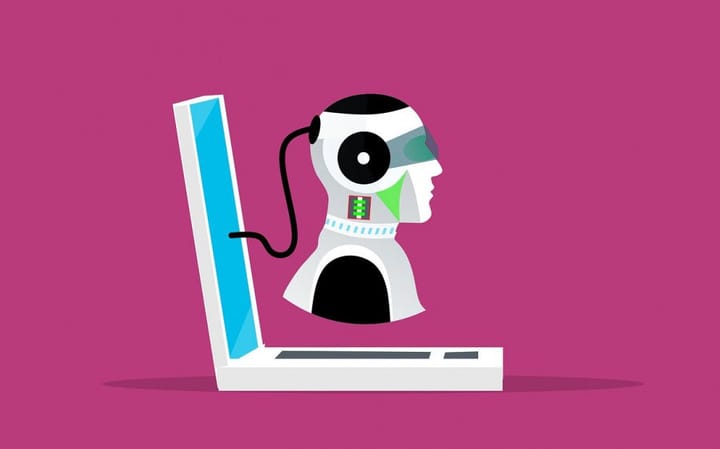Cognitive Activities for 2 Year Olds: A Guide to Boosting Young Minds
"Look for milestones like the ability to follow simple instructions, recognize familiar objects, and show interest in interactive play."

First Published Dec 12, 2023
Written By AMBSDR AI #
Boosting Young Minds

Raising a 2-year-old is an adventure filled with laughter, wonder, and the occasional challenge. As parents, educators, or caregivers, understanding how to promote cognitive development during these formative years is crucial. Cognitive activities for 2-year-olds are not just about learning numbers and letters; they're about nurturing a growing brain to ensure a solid foundation for future learning.
Key Takeaways:
- Engaging in cognitive activities with 2-year-olds can significantly enhance their cognitive and language development.
- Simple, everyday interactions and play can be transformed into opportunities to develop critical thinking and problem-solving skills.
- Choosing the right cognitive toys and activities can help identify and address cognitive developmental delays early on.
The Importance of Cognitive Development in Early Childhood
Cognitive development is the construction of thought processes, including remembering, problem-solving, and decision-making, from childhood through adolescence to adulthood. For 2-year-olds, cognitive activities are essential as they lay the groundwork for successful learning and understanding of the world around them.
Toddlers develop cognitive skills rapidly, and as they grow, their curiosity and ability to absorb information are at their peak. It's during this time that the foundations for critical thinking, communication skills, and early literacy skills are established. Engaging toddlers in cognitive activities can significantly promote cognitive development and prepare them for the challenges of preschool and beyond.
Everyday Moments as Learning Opportunities
Every moment with a 2-year-old can be a learning opportunity. Cognitive development isn't confined to structured activities or educational toys; it's ongoing and can be nurtured throughout the day. For example, a simple walk in the park can turn into a lesson on colors, shapes, and nature, helping to expand a child's vocabulary and understanding of the world.
Meal times can also be educational. Encouraging toddlers to identify and name foods, count pieces of fruit, or sort items by color or shape can promote cognitive development in a natural and enjoyable setting. These everyday interactions are pivotal in a child's cognitive development and begin to shape their learning habits for the future.
Playtime: The Heart of Cognitive Development
Play is the language of children, and through it, toddlers develop cognitive skills effortlessly. Transforming playtime into a rich source of cognitive stimulation is as simple as choosing the right toys and activities. Cognitive toys that encourage sorting, matching, or building, such as blocks or simple puzzles, can enhance problem-solving skills and fine motor skills.
Role-playing games are also excellent for toddler cognitive development. By pretending to be doctors, chefs, or superheroes, children learn to navigate social roles, understand emotions, and develop empathy. These play-based activities are fundamental in shaping a toddler's cognitive abilities and preparing them for social interactions.
The Role of Books in Cognitive and Language Development
Early literacy skills are a critical component of cognitive development. Reading to a 2-year-old not only fosters a love for books but also stimulates imagination and language skills. Picture books with simple stories can help toddlers make connections between words and images, enhancing their comprehension and vocabulary.
Interactive books that require participation, such as those with flaps to lift or textures to feel, keep toddlers engaged and make reading a multi-sensory experience. This type of cognitive activity for toddlers not only promotes cognitive development but also creates a special bond between the child and the reader.

Music and Movement: A Rhythmic Approach to Cognitive Growth
Music is a powerful tool for toddler cognitive development. Songs with repetitive phrases and simple melodies can improve memory and language skills. Dancing to music, on the other hand, helps with brain development and coordination. Encouraging a child to move to the rhythm or sing along can also enhance their auditory and motor skills.
Incorporating instruments, even simple homemade ones, can teach cause and effect, as well as improve fine motor skills. Music and movement activities are not only fun but also critical in promoting cognitive development in young children. Sure, here are two new sections for your article:
Sensory Play: A Foundation for Cognitive Growth
Sensory play is a critical component of cognitive activities for 2-year-olds. It involves engaging a child's senses—touch, smell, taste, sight, and hearing—to encourage learning and development. For toddlers, sensory play is not just about squishing playdough or splashing water; it's an exploration of their world. As they scoop, pour, and feel different textures, they develop problem-solving skills and an understanding of cause and effect. This type of play lays the groundwork for more complex cognitive tasks as they grow.
Moreover, sensory play can be seamlessly integrated into a toddler's daily routine. Simple activities like playing with rice, pasta, or beans can stimulate a child's cognitive development. Begin by providing a variety of materials that toddlers can sort by size, color, or shape. This not only enhances their cognitive skills but also fine-tunes their motor skills. As they engage their senses, they learn to process and respond to new experiences, which is essential for their overall cognitive growth.
Interactive Storytelling: Sparking Cognitive Connections
Interactive storytelling is a powerful tool in a child's cognitive development. By engaging toddlers in stories where they can make choices or influence the outcome, parents and educators can significantly enhance a child's problem-solving skills. This form of storytelling not only captivates their attention but also encourages them to think critically and make decisions, laying the groundwork for more complex cognitive activities for 2-year-olds as they grow.
Moreover, interactive storytelling can be a dynamic way to introduce new concepts and vocabulary, further enriching a toddler's cognitive development. As children predict what will happen next or suggest alternative endings, they are actively constructing knowledge and strengthening their understanding of the world around them. This narrative approach to learning is not only enjoyable but also instrumental in fostering a lifelong love for reading and storytelling.

Language Games: Enhancing Cognitive Skills
Language games are a fantastic way to stimulate a child's cognitive development from an early age. By engaging in playful activities that involve naming objects, describing actions, or even simple storytelling, toddlers can expand their vocabulary and begin to understand the structure of language. These games can be as simple as 'I Spy' which not only introduces new words but also enhances problem-solving skills as they guess the object you're describing.
Moreover, language games provide a platform for parents to observe and participate in their toddler's cognitive development. Rhyming games, for instance, encourage children to listen carefully and detect patterns in sounds, which is a fundamental skill in language acquisition. By regularly incorporating these games into daily routines, parents can foster an environment where cognitive activities for 2-year-olds become a natural and enjoyable part of their growth.
Building Blocks: Constructing Knowledge
Building blocks aren't just toys; they're foundational cognitive activities for 2-year-olds that can significantly enhance their problem-solving skills. As toddlers stack, balance, and align these colorful shapes, they're not only having fun but also learning about spatial relationships, cause and effect, and basic physics principles. This hands-on play encourages children to experiment and solve problems, such as how to prevent their towers from toppling over. It's a simple yet powerful tool in a child's cognitive development journey.
Moreover, building blocks can be a social activity, promoting cooperative play and communication. When toddlers work together to create a structure, they're learning to share ideas and develop their language skills. This collaborative effort not only strengthens their social bonds but also lays the groundwork for advanced problem-solving abilities. By engaging in this form of play, parents and caregivers can observe and support their child's cognitive development, ensuring that the building blocks of knowledge are firmly in place.

Exploring Shapes and Colors: A Visual Approach to Cognitive Development
Introducing toddlers to the world of shapes and colors is a vibrant way to kickstart their cognitive development. Through games and activities that involve identifying and matching different hues and contours, children begin to understand classification and categorization—key cognitive skills. This visual exploration is not just about recognizing a blue square or a red circle; it's about making connections between objects and their representations in the world around them.
Incorporating shapes and colors into everyday play is easy and effective. For instance, a simple walk in the park can turn into a treasure hunt for circles, or snack time can become an opportunity to sort fruits by color. These activities not only enrich a toddler's cognitive development but also enhance their observational skills and attention to detail. As they grow more familiar with these concepts, they'll be better equipped to tackle more complex cognitive tasks, paving the way for a lifetime of learning and discovery.
Cooking with Kids: A Recipe for Cognitive Growth
Cooking presents a unique blend of sensory experiences and cognitive challenges that can greatly benefit a toddler's cognitive development. As they measure ingredients, toddlers practice counting and understanding quantities, which are key components of early math skills. The act of following a recipe can also introduce basic problem-solving skills, as they figure out what comes next or how to fix a small mistake.
In the kitchen, children's cognitive development begins to take shape in real-world applications. They learn concepts like hot and cold, soft and hard, and they start to grasp the idea of time as they wait for cookies to bake. Cooking with kids is not just about the delicious end product; it's about the cognitive activities for 2-year-olds that occur naturally as they whisk, pour, and taste. It's a hands-on experience that can enhance a baby's cognitive development in a warm and engaging environment.
Hands-On Science Experiments: Encouraging Curiosity and Discovery
Science experiments, even in their simplest form, can be fascinating cognitive activities for toddlers. Introducing basic scientific concepts through hands-on activities can ignite a child's curiosity and encourage exploration. For instance, mixing safe household items to create reactions, like vinegar and baking soda, can teach toddlers about cause and effect, an essential aspect of their cognitive development.
These experiments need not be complex; the key is to allow the child to observe, predict, and discuss the outcomes, which supports the development of their problem-solving skills. As toddlers engage in these exploratory activities, they learn to ask questions and seek answers, which is the very foundation of scientific thinking and a significant part of a baby's cognitive development. Through such interactive experiences, children learn that they can interact with and have an impact on the world around them.
Imaginative Play: Cultivating Creativity and Cognition
Imaginative play, also known as pretend play, is a powerful cognitive activity for toddlers. It allows them to express themselves, act out scenarios, and explore their creativity. When a 2-year-old pretends to be a chef, a doctor, or a superhero, they are not just playing; they are developing critical cognitive skills. Through these role-playing activities, they learn to solve problems, think abstractly, and understand the world around them. Imaginative play is a natural way for toddlers to enhance their cognitive development.
Encouraging imaginative play is simple. Provide your toddler with props and a safe space to let their imagination run wild. Dress-up clothes, toy tools, or even everyday household items can become the perfect tools for a child's imaginative journey. As they create stories and navigate through their make-believe worlds, they are actively developing their toddler cognitive skills. This form of play not only boosts their cognitive abilities but also supports their social and emotional development, making it a multifaceted approach to nurturing young minds.

Artistic Expression and Cognitive Expansion
Art activities are a fantastic way to promote cognitive development in 2-year-olds. Drawing, painting, or playing with clay allows toddlers to express themselves creatively while developing fine motor skills. These activities also provide an opportunity for children to make choices and use their imagination, which are essential aspects of cognitive growth.
Through art, toddlers can learn about colors, shapes, and spatial relationships. It's a form of non-verbal communication that can reveal a child's cognitive and emotional state, offering insights into their development.
The Power of Puzzles and Problem Solving
Puzzles are classic cognitive toys that can significantly boost a toddler's problem-solving skills. Starting with simple wooden puzzles and gradually increasing complexity can help toddlers develop patience, strategy, and critical thinking. As they figure out where each piece goes, they are also enhancing their spatial awareness and hand-eye coordination.
Problem-solving doesn't have to be limited to puzzles, though. Everyday challenges, like figuring out how to retrieve a toy from under the couch or deciding which shoes to wear, can also sharpen a toddler's cognitive skills.
Technology and Cognitive Development: Finding Balance
In today's digital age, technology can be a part of a child's cognitive development. Interactive apps and games designed for toddlers can be educational and engaging. However, it's essential to find a balance and ensure that screen time doesn't replace physical play, human interaction, and exploration of the real world.
Setting limits on screen time and choosing high-quality, age-appropriate content can ensure that technology serves as a tool to promote cognitive development rather than hinder it.

Social Interaction: The Cornerstone of Cognitive Abilities
Social interaction is crucial for a toddler's cognitive and language development. Playdates, family gatherings, and group activities provide opportunities for children to learn from their peers and adults. Through these interactions, toddlers learn to communicate, share, and understand different perspectives.
Encouraging cooperative play, where children work together to build a tower or complete a task, can also enhance cognitive development by teaching teamwork and collective problem-solving.
Outdoor Exploration: Nature's Classroom
The great outdoors is an expansive classroom for toddlers. Exploring nature can stimulate a child's cognitive development in unique ways. Identifying animals, collecting leaves, or playing in the sand can teach children about the natural world, cause and effect, and basic scientific concepts.
Outdoor play also encourages physical activity, which is linked to better brain development and cognitive function. It's an excellent way for children to learn about their environment while developing their cognitive abilities.
Recognizing and Supporting Cognitive Developmental Delays
While most toddlers develop cognitive skills at their own pace, some may experience cognitive developmental delays. Parents and caregivers need to be aware of the milestones and seek professional advice if they have concerns.
Early intervention can make a significant difference for children with developmental delays. Through targeted activities and therapies, children can improve their cognitive skills and catch up to their peers.
Summary
Cognitive activities for 2-year-olds are essential for fostering a love for learning and building a strong foundation for future educational success. From everyday interactions to structured play, there are countless opportunities to promote cognitive development. By incorporating a variety of activities that focus on problem-solving, critical thinking, communication skills, and creativity, caregivers can support a toddler's cognitive growth in a fun and engaging way.
FAQ Section
Q: What are some simple cognitive activities for 2-year-olds?
A: Simple cognitive activities include playing with blocks, reading picture books, singing nursery rhymes, doing simple puzzles, and exploring nature. These activities help develop problem-solving skills, early literacy skills, and an understanding of the world.
Q: How can I tell if my child has a cognitive developmental delay?
A: Look for milestones like the ability to follow simple instructions, recognize familiar objects, and show interest in interactive play. If your child is not meeting these milestones, consult a pediatrician or child development specialist.
Q: How much screen time is appropriate for a 2-year-old?
A: The American Academy of Pediatrics recommends limiting screen time for children aged 2 to 5 to under half an hour per day of high-quality programming. It's important to ensure that screen time is interactive and educational rather than passive. It is also important for the parents to remain present. Screen-time is not a baby-sitter.
"Thanks For Reading!"
-SHiNER and The AI Team





Comments ()